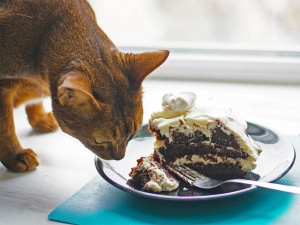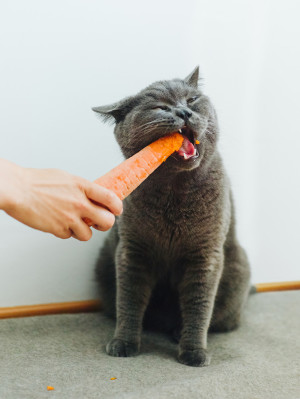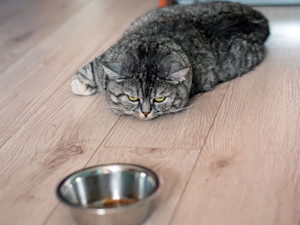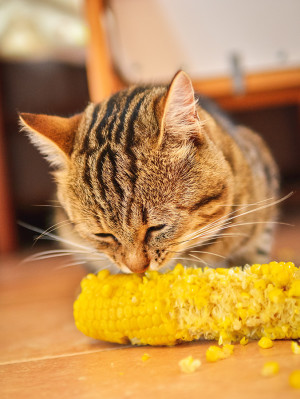Can Cats Eat Peanut Butter?
The sweet and salty treat is OK – in moderation
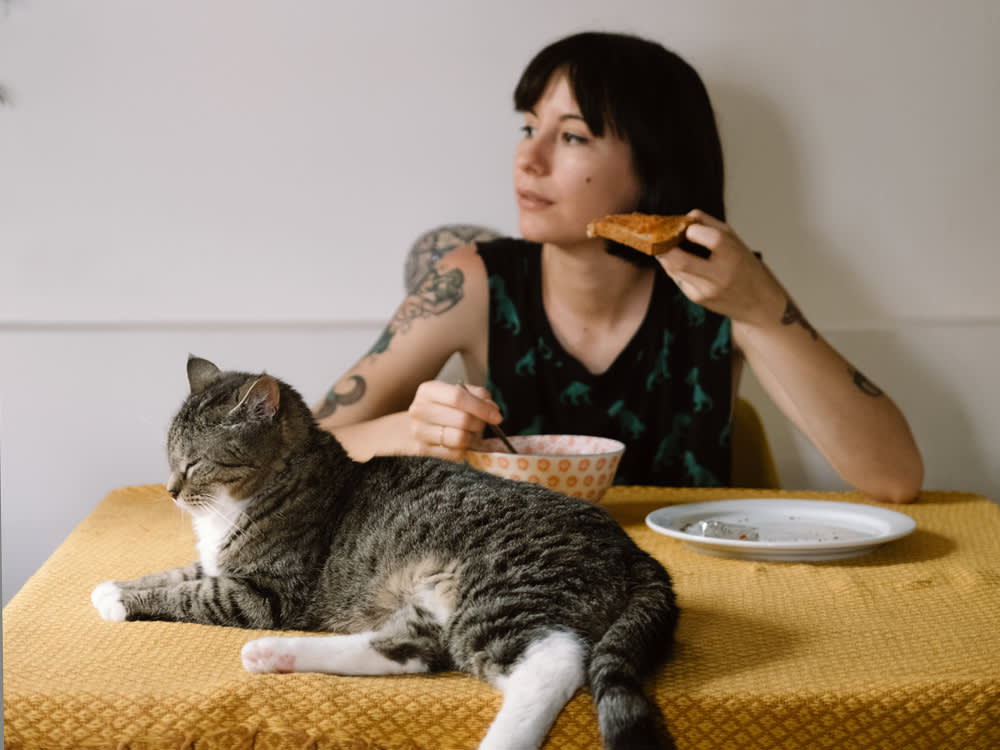
Share Article
Peanut butter is a beloved staple in most households, not only for humans but also as a treat for pets, especially dogs. Peanut butter can be a convenient way to hide tablets, or as a reward for good behaviour. But when it comes to cats, is peanut butter a safe and suitable treat?
Cats have unique dietary needs and can be sensitive to foods, even ones that are safe for other pets. Although peanut butter may seem harmless, there are several reasons why cat parents should be cautious before letting their feline friends indulge. We explore the pros and cons of peanut butter for cats, looking at its nutritional profile, potential health risks and safe ways to use it occasionally if needed. Read on to discover whether peanut butter should be in your cat’s treat rotation or left strictly on your toast.
Can cats eat peanut butter?
Yes, in small quantities and in moderation. Peanut butter is high in protein, making it a tempting option for pet parents looking for a treat or a way to disguise medication. Dr Maryanne Murphy, a clinical assistant professor of nutrition at the University of Tennessee, notes that cats can tolerate small amounts of peanut butter in moderation. However, there are essential factors to consider before making peanut butter a regular treat for your cat.
Should cats have peanut butter?
While peanut butter is safe for some cats in small quantities, there are several reasons why it may not be the best treat for them on a regular basis:
High-calorie content
Peanut butter is rich in oils and fats, leading to a high-calorie content. For cats, this can mean unwanted weight gain if consumed regularly. Cats are prone to obesity, which can lead to health complications, so it’s best to reserve peanut butter for rare occasions. A small amount occasionally, such as when hiding medication, is generally safe.
Excessive salt levels
Commercial peanut butter often contains high levels of sodium. Too much salt can lead to issues such as vomiting, diarrhoea or excessive thirst. In severe cases, prolonged salt consumption may increase the risk of heart disease in cats.
Potential choking hazard
The thick, sticky consistency of peanut butter can be challenging for some cats to swallow and may even pose a choking risk. Cats may struggle to process the texture, particularly if they are not used to it.
Risk of nut allergies
Some cats are allergic to nuts, and although peanut allergies in cats are rare, they can occur. An allergic reaction could range from mild irritation to severe anaphylaxis, a life-threatening reaction. If you notice any signs of allergic response, such as itching, swelling or difficulty breathing, seek veterinary attention immediately.
Xylitol toxicity risk
Some peanut butter brands contain xylitol, an artificial sweetener toxic to dogs. Although there is limited research on xylitol’s effects on cats, it’s safest to avoid giving your cat any peanut butter containing this ingredient. If your cat consumes peanut butter with xylitol, contact your vet promptly.
How to safely give your cat peanut butter
If you decide to offer peanut butter to your cat in moderation, here are some tips for safe usage:
Choose natural peanut butter: opt for brands without added salt, sugar or artificial sweeteners, especially xylitol.
Use small amounts: limit peanut butter to a small lick or a minimal amount to hide medication, rather than offering it as a regular treat.
Monitor for reactions: observe your cat closely after their first taste of peanut butter. Watch for signs of an allergic reaction or gastrointestinal issues.
Alternative treats: consider alternatives that are more suited to a cat’s diet, such as plain, cooked chicken, which is both high in protein and low in fat.
While a small amount of peanut butter is not toxic to most cats, it is best reserved for occasional use, such as administering medication, rather than a regular treat. For cat parents, the safest approach is always to consult with a veterinarian before adding new foods to your cat’s diet. And remember… what works for dogs doesn’t necessarily work for cats.

Jodi Helmer
Jodi Helmer is a North Carolina-based freelance writer who shares her home with an embarrassing number of rescue dogs and relies on four feral cats to patrol the barn. When she isn’t refilling food and water dishes, Jodi writes about animals for Scientific American, Sierra, WebMD, AKC Family Dog, Living the Country Life, and Out Here.
Related articles
Can Cats Eat Carrots?
Learn whether your little Bugs Bunny can crunch on the veggie
![]()
How to Get Your Pernickety Cat to Try a New Food
Discover the ways to get your picky eater to expand their culinary horizons
![an orange and brown cat nibbles corn on the cob]()
Can Cats Eat Sweetcorn?
A few kernels won’t hurt, but think twice before doling out a bowl of the stuff

